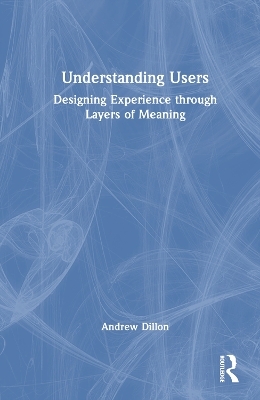
Understanding Users
Routledge (Verlag)
978-0-367-45927-7 (ISBN)
Grounded in the user-centered design movement, this book offers a broad consideration of how our civilization has evolved its technical infrastructure for human purpose to help us make sense of our contemporary information infrastructure and online existence. The author incorporates historical, cultural, and aesthetic approaches to situating information and its underlying technologies across time in the collective, lived experiences of humanity.
In today’s digital environment, user experience is vital to the success of any product or service. Yet as the user population expands to include us all, designing for people who vary in skills, abilities, preferences, and backgrounds is challenging. This book provides an integrated understanding of users, and the methods that have evolved to identify usability challenges, that can facilitate cohesive and earlier solutions. The book treats information creation and use as a core human behavior based on acts of representation and recording that humans have always practiced. It suggests that the traditional ways of studying information use, with their origins in the distinct layers of social science theories and models is limiting our understanding of what it means to be an information user and hampers our efforts at being truly user-centric in design. Instead, the book offers a way of integrating the knowledge base to support a richer view of use and users in design education and evaluation.
Understanding Users is aimed at those studying or practicing user-centered design and anyone interested in learning how people might be better integrated in the design of new technologies to augment human capabilities and experiences.
Andrew Dillon is the V.M. Daniel Professor of Information at the University of Texas at Austin, USA, where he served as dean of the School of Information from 2002 to 2017. Prior to this he was a founding member of the School of Informatics at Indiana University, where he directed the master’s program in HCI. He earned a PhD in psychology at Loughborough University and a BA and MA (first class) at University College Cork, Ireland.
1. Information as a Human Process, 2. The Emergence of User-Centeredness, 3. Designing Our Information World: Craft or Science?, 4. Humans and the Vertical Slice, 5. The Physio-Tech Layer, 6. The Cogito-Tech Layer, 7. The Socio-Tech Layer, 8. The Culturo-Tech Layer, 9. Usability as a Design Value, 10. Acceptability as a Design Value, 11. Augmentation as the REAL Value
| Erscheinungsdatum | 29.03.2023 |
|---|---|
| Zusatzinfo | 12 Line drawings, black and white; 2 Halftones, black and white; 14 Illustrations, black and white |
| Verlagsort | London |
| Sprache | englisch |
| Maße | 152 x 229 mm |
| Gewicht | 560 g |
| Themenwelt | Geisteswissenschaften ► Psychologie ► Allgemeine Psychologie |
| Geisteswissenschaften ► Psychologie ► Arbeits- und Organisationspsychologie | |
| Geisteswissenschaften ► Psychologie ► Verhaltenstherapie | |
| Mathematik / Informatik ► Informatik | |
| Recht / Steuern ► Privatrecht / Bürgerliches Recht ► IT-Recht | |
| Technik | |
| ISBN-10 | 0-367-45927-2 / 0367459272 |
| ISBN-13 | 978-0-367-45927-7 / 9780367459277 |
| Zustand | Neuware |
| Informationen gemäß Produktsicherheitsverordnung (GPSR) | |
| Haben Sie eine Frage zum Produkt? |
aus dem Bereich


